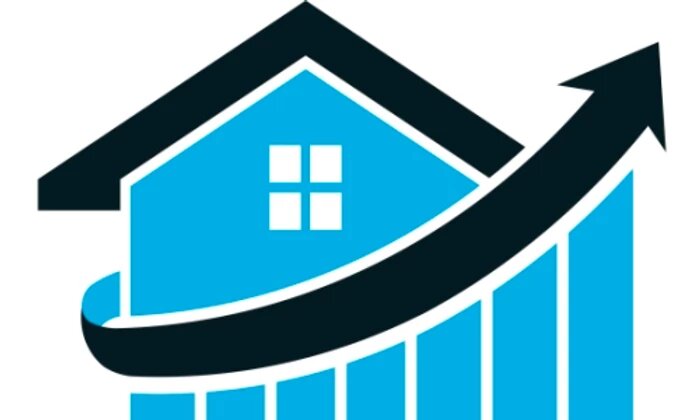Fees are rarely reduced as prices on services and utilities increase from year to year. With additional services come higher monthly payments.

Why Do HOA Dues & Assessments Always Go Up and Not Down?
Today, 68 million residents live within an HOA governed development. Whether it’s a large luxury development comprised of condos, townhouses, and single family homes, or one building with just a few units, HOA assessments can be composed of anything from monthly dues, to special assessments created for many reasons.
Usually, HOA fees are adjusted annually at the beginning of a fiscal year. For over 60 percent HOAs, that fiscal year begins on January 1 so many assessment changes will occur in January of each year. Decision making, however, may be done during the board’s Annual Meeting, when officers are elected (generally, October of the prior year). The reason for this is that in most cases, the HOA property management company representative will present the newly elected board with its annual budget for the upcoming year. Based on the new budget, the HOA board of directors may adjust monthly dues accordingly. Occasionally, a board may need to increase its dues at a more significant percentage than what is normal, which could mean the fee increase would require a vote of the entire HOA membership, not just its board of directors.
How Are HOA Dues & Assessments Determined?
Ordinarily, the HOA board of directors will divide the total expenses allocated in the budget by the number of homes in the community to set its monthly dues. Since individual properties are of varying sizes, association dues may instead be based on square footage or a similar measure prescribed in the HOA CC&Rs. Fees are rarely if ever, reduced, as prices on services and utilities increase from year to year. With additional services come more monthly payments due to the number of service providers, examples of which include the following:
- Internet (for security system)
- Phone land line (entry system)
- Gardener & Tree Service
- Water
- Electricity (lighting, parking gate, maintenance personnel)
- Gas (common area barbecues)
- Maintenance (handymen, pool, golf course, roofers, painters; concrete, door and building surface repairs)
- Exterminators (rodents and insects)
- HOA property management fees
- Taxes
All Homeowners Must Do Their Part for the HOA
Just because services aren’t used by an individual homeowner, it doesn’t mean your fees will be reduced. For example, in the case of property taxes, you are not given a break on school assessments simply because you do not have children; as a homeowner located in your state, county or municipality, you are expected to pay property taxes towards the common good of your community. Likewise, every homeowner is expected to pull their weight and pay for the good of everyone in the development. Each homeowner must make monthly (or other preordained time) payments throughout the year or face penalties or foreclosure for nonpayment.
Special Assessments
When an HOA decides that specific special projects are necessary for the community, such as painting the exterior of the buildings or repairing flood damage not covered by HOA insurance, the association may require all owners (perhaps after a community vote) to pay a special assessment to cover the cost. As an example, a small HOA had undergone several wood siding replacements on exterior unit walls over the course of a decade (due to termite and water damage). As a result, the HOA’s board of directors decided that it would cover the cost of replacing stucco, while homeowners covered the cost of the new windows and sliding glass doors required to complete the repair. Homeowners rebelled at the high price, so a compromise was reached for a lower assessment of each homeowner affected.
The following year after existing siding began causing leakage, the HOA board of directors voted to increase its monthly association dues by 10%. Because reserves were negatively impacted by the high cost of this work, a subsequent 10% increase in monthly dues was necessary to bolster reserves and protect the HOA from not being covered for future emergencies. Keep in mind that board members are homeowners themselves, so they too must pay the fee increases just like other association members. On the other hand, homeowners who are not aware of the critical nature of expenditures and reserves believe that every minor issue should be addressed, while sometimes budgets may not allow for it.
Sometimes, special assessments raise more money than needed to fund the project. Occasionally, homeowners challenge the HOA assessment and can take the matter to court. If the over-budget amount raised is not excessive, the board (or entire membership) may vote to place all the money into reserves. When unforeseen accidents such as plumbing emergencies cause flooding, it’s even more important to have a well-funded reserve to keep additional special assessments at bay.
Before You Purchase a Home with a Homeowner’s Association
If the home you purchase comes with monthly HOA fees and/or assessments, you or your legal representative should ascertain whether the costs and assessments are within reason (for your own budget, and for the health of the community) and reflect an HOA that has a relatively well-funded reserve. The vast majority of HOAs are not funded 100%, but at least 70-80% is desirable; anything below 40% is a red flag.
If you are interested in buying a home where the monthly fees appear reasonable but many of the owners aren’t paying, the HOA could potentially face bankruptcy. This is a situation in which you’ll need to be informed before you even put down a deposit. If the HOA has not been doing its fiduciary duty by setting aside monies for financial reserves, while the development has gone without maintenance, it is a serious matter for any potential homebuyer (or current residents, for that matter). Before you go any further, ask the property management company if there are any outstanding maintenance issues or new large expenditures. If the property is not being properly maintained, you don’t want to know about it AFTER you have already moved in.
